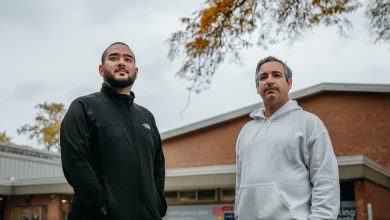Britain Approves Extradition Order for Assange

LONDON — The British government approved an extradition order on Friday for Julian Assange, the embattled WikiLeaks founder, confirming a court decision that he can be sent to the United States to stand trial on espionage charges, though his legal fight against the decision is likely not over.
While the order is a blow for Mr. Assange, whose case is seen by rights groups as a potential challenge to press freedom, he is likely to once again appeal the decision in a British court, an avenue that legal experts say is still open.
A spokesperson for the Home Office said that “on 17 June, following consideration by both the Magistrates’ Court and High Court, the extradition of Mr. Julian Assange to the U.S. was ordered,” adding that “Mr. Assange retains the normal 14-day right to appeal.”
The Home Office pointed to a British court ruling that did not find “that it would be oppressive, unjust or an abuse of process to extradite Mr. Assange.”
Additionally, the courts did not find that extradition “would be incompatible with his human rights, including his right to a fair trial and to freedom of expression, and that whilst in the U.S. he will be treated appropriately, including in relation to his health.”
His defense team has yet to say what comes next. The approval of the order by Priti Patel, the home secretary, is just the latest turn in a long running-court battle and comes after a British court ordered Mr. Assange’s extradition in April.
In 2019, Mr. Assange was charged in the United States under the Espionage Act in connection with obtaining and publishing classified government documents about the wars in Afghanistan and Iraq on WikiLeaks in 2010. Those files were leaked by Chelsea Manning, a former military intelligence analyst, before being published by the site.
Throughout the prolonged legal battle against his extradition, Mr. Assange has remained in custody at Belmarsh prison in London, where he has been detained for nearly three years. Mr. Assange married his partner Stella Moris in prison this year.
He was arrested in London in 2019 after spending seven years holed up in the Ecuadorean Embassy in an effort to avoid detention as he fought extradition to Sweden, where he was wanted for questioning in a rape inquiry. That case was later dropped.
Under current government guidelines, Ms. Patel is only able to block extradition requests in a small number of circumstances. That includes cases concerning people previously extradited or transferred to Britain from elsewhere, others involving people facing the death penalty, or those who might be charged with further, previously unannounced offenses after their transfers.
But if none of those issues were involved, Ms. Patel would have no reason to refuse an extradition request and be obliged to comply, according to the Home Office.
However, Mr. Assange’s legal team will still be able to apply to appeal to Britain’s High Court on both Ms. Patel’s decision and potentially on a number of other points of concern about the U.S. request. The High Court will then decide which points Mr. Assange may appeal, if any. This process could take several months.
Once he has exhausted his options in British courts, Mr. Assange could also try to appeal to the European Court of Human Rights, though it is still unclear how much authority it would have over Britain’s decision after its departure from the European Union.
Rights groups have expressed worries that Mr. Assange’s extradition to the United States could threaten press freedom, and when the court made a decision on his case, several organizations denounced the move.





